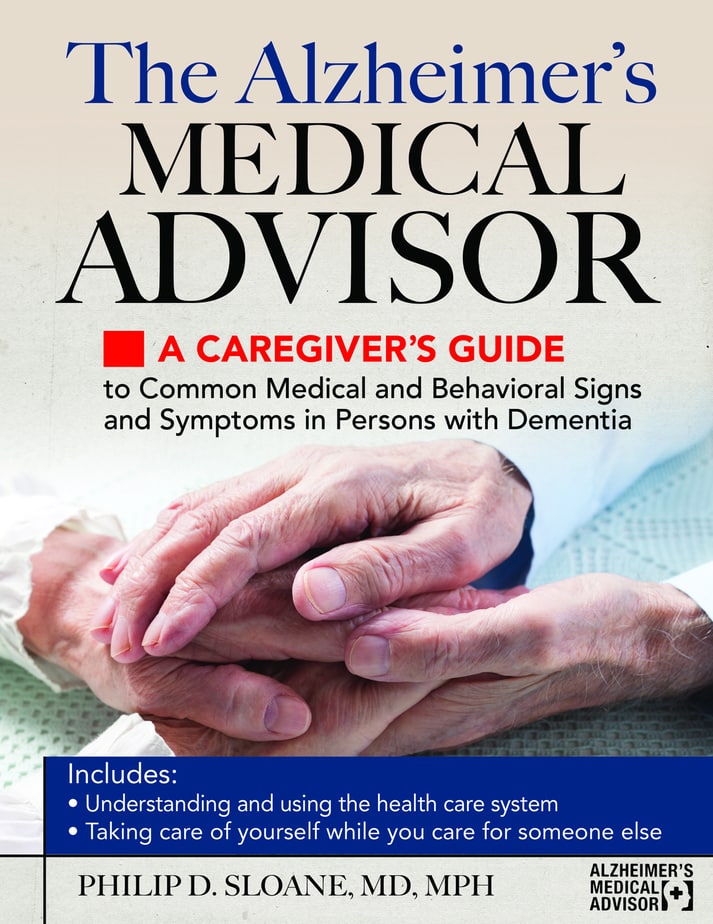I was six years into my medical training – a second year resident in family medicine – when I saw the first patient who I now know had Alzheimer’s disease. A middle-aged man brought her in, explaining that she was his mother and that the family was at wits end. His mother didn’t seem sick, he explained, but she couldn’t remember “anything,” made poor decisions, and would wander off and get lost if left alone. In the examining room, she wouldn’t sit down. From my limited history and examination, it was clear that she had a problem involving memory, judgment, and communication. This was not a little forgetfulness, it was a progressive problem that the family was struggling to understand and cope with. I asked my faculty preceptor what to do, and he had no idea. I still remember how helpless I felt, because something was so wrong and yet I had nothing to offer. It was 1977.
In the forty years since then, so much has changed and yet so little. Back then we called it senility and knew almost nothing about it; today we can talk at great length about the different cognitive disorders, of which Alzheimer’s disease is the most prominent, and about amyloid precursor protein, tau microfilaments, PET image studies, and so on. Back then it seemed rare; today it’s a leading cause of death and disability – widespread and widely recognized. But the impact on families hasn’t changed at all.
Since then, much of my career and life has focused on aging, Alzheimer’s disease and other dementias. I obtained certification in geriatric medicine; worked in nursing homes, assisted living and home care settings; authored 18 books, including a textbook of geriatric medicine; and conducted numerous research studies on Alzheimer’s care. My mother, who died at 98, and my father-in-law, who died at 87, both had cognitive disorders and died after a long period of illness. I developed training programs for doctors, nurses, nursing assistants, and other professional caregivers on diagnosis and management of persons with dementia. All of this was part of a general awakening among health professionals of the challenges family caregivers face providing day-to-day care of a loved one.
The Alzheimer’s Medical Advisor: A Caregiver’s Guide was written to help share with family caregivers the practical knowledge that has accumulated during the past 40 years. A major focus of the book is helping family caregivers know what to do when confronted with new or worsening symptoms – from medical problems like abdominal pain, cough, and diarrhea; to behavioral symptoms such as hitting, hollering, or refusing care; to more vague issues like not eating well. It also contains sections on working with the health care system, medications, watching for conditions such as pain and dehydration, and self-care advice for caregivers. An advisory group of nine family caregivers helped shape the book. Dozens of health professionals and students contributed background research, thanks in part to financial support from the National Institutes of Health. To make the book attractive and easy to read, we partnered with a nationally-prominent graphics designer. To field test an early version of the book, 50 family caregivers used it for six months and told us what they liked and what needed to be changed. Our final book was published in July of this year (2017) by Sunrise River Press. Feedback has been gratifyingly positive.
About the Author
 Dr. Philip Sloane is the Elizabeth and Oscar Goodwin Distinguished Professor of Family Medicine at the University of North Carolina at Chapel Hill. Jointly certified in family medicine and geriatric medicine, he has served as medical director of a skilled nursing facility, medical director of an Alzheimer’s Unit, national advisor on Alzheimer’s care for a major nursing home chain, director of a nursing home teaching service, and physician and quality consultant to a Program of All-Inclusive Care for the Elderly. As a researcher, he’s conducted over 20 studies in nursing homes and assisted living, including the research that developed two award-winning training programs, Bathing without a Battle and Mouth Care Without a Battle. He was the recipient of the prestigious Pioneer Award from the national Alzheimer’s Association.
Dr. Philip Sloane is the Elizabeth and Oscar Goodwin Distinguished Professor of Family Medicine at the University of North Carolina at Chapel Hill. Jointly certified in family medicine and geriatric medicine, he has served as medical director of a skilled nursing facility, medical director of an Alzheimer’s Unit, national advisor on Alzheimer’s care for a major nursing home chain, director of a nursing home teaching service, and physician and quality consultant to a Program of All-Inclusive Care for the Elderly. As a researcher, he’s conducted over 20 studies in nursing homes and assisted living, including the research that developed two award-winning training programs, Bathing without a Battle and Mouth Care Without a Battle. He was the recipient of the prestigious Pioneer Award from the national Alzheimer’s Association.
The Alzheimer’s Medical Advisor (Sunrise River Press, 2017) is available from major retailers like Barnes & Noble and Amazon, and from the Sunrise River Press website.
Amazon
Sunrise River Press




One Response
You have an amazing background and your life’s works is impressive. Thank you for giving so much to families who have the daily struggle of Alzheimer’s. Alzheimer’s-Medical-Advisor will make a difference. Thank you, Rosalys Peel
Author of Mike & Me